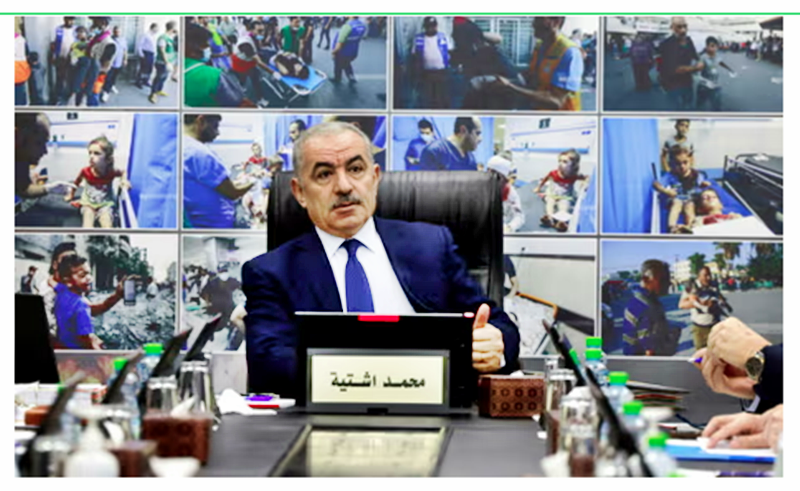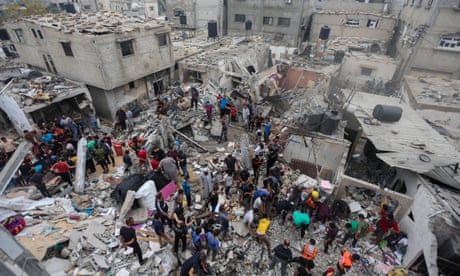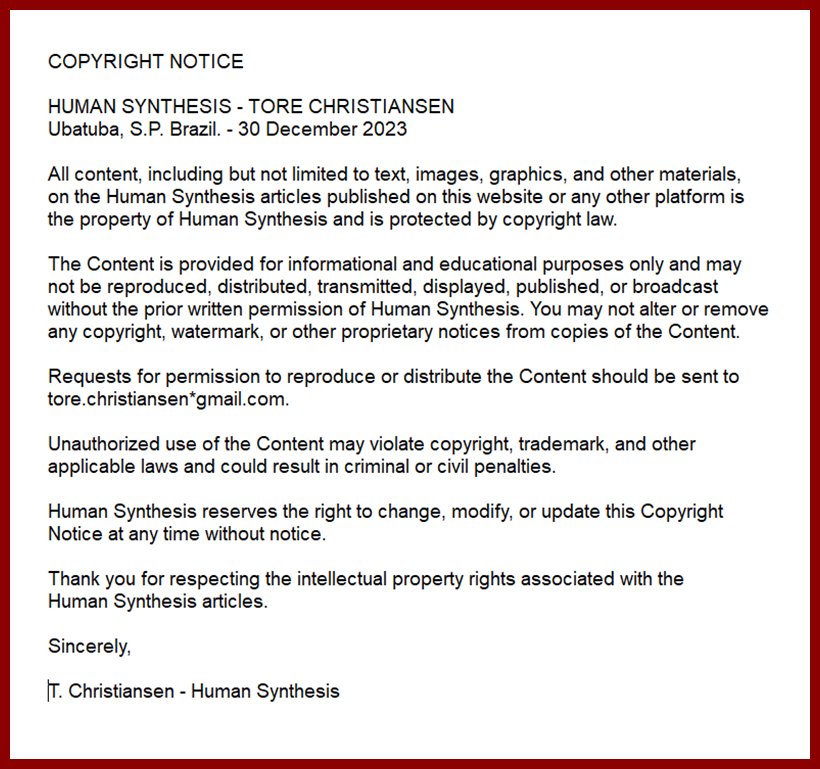Palestinian PM: we will not run Gaza without a solution for West Bank

By Julian Borger and Sufian Taha in RamallahSun 29 Oct 2023
Exclusive: Mohammad Shtayyeh calls for a ‘comprehensive, peaceful vision’ and ceasefire in Gaza
The Palestinian Authority will not return to governing Gaza after the Israel-Hamas conflict without a comprehensive agreement that includes the West Bank in a Palestinian state, the authority’s prime minister has said.
Israeli civilian and military officials have said their plan for the end of the Gaza war is to have some form of transitional authority rule the territory, perhaps involving Arab states, leading to the restoration of the Palestinian Authority (PA), which was ousted from Gaza in a 2007 Hamas coup.
But Mohammad Shtayyeh, who has been prime minister since 2019, said the PA would not cooperate without a return to a genuine peace process resulting in two sovereign states.
“To have the Palestinian Authority go to Gaza and run the affairs of Gaza without a political solution for the West Bank as if this Palestinian Authority is going aboard an F-16 or an Israeli tank?” Shtayyeh said. “I don’t accept it. Our president [Mahmoud Abbas] does not accept it. None of us will accept it.”
“I think what we need is a comprehensive, peaceful vision,” the prime minister said in an interview in his office in Ramallah, on the West Bank. “The West Bank needs a solution, and then link Gaza to it within the framework of a two-state solution.”
The priority, Shtayyeh said, was to stop the bombing of Gaza, as well as violence on the West Bank, in which he said 110 Palestinians had been killed over the past three weeks by Israeli security forces and settlers.
The Gaza health ministry has said that the death toll there had topped 8,000. The ministry is run by Hamas, and the US president, Joe Biden, has questioned the accuracy of its figures, but Shtayyeh said the toll had been verified with names and identity numbers.
About 1,400 Israelis were killed in the Hamas raid on settlements near the Gaza border, and more than 220 people were taken hostage and are being held within the coastal strip.
After three weeks of aerial bombardment, Israel launched a ground assault on Gaza on Friday night as part of a campaign aimed at politically destroying Hamas and its military, an offensive that Israeli officials have said they expect to be long and grueling.
The government of Benjamin Netanyahu is adamant that it has no intention of returning to the direct rule of Gaza, which it did before 2005. Shtayyeh argued that the Israeli need for someone else to run the territory in place of Hamas gives the international community a rare degree of leverage to return to a two-state solution that Netanyahu has systematically dismantled during his time in office.
“The question for us – the Israelis, the Americans, the Europeans, everybody – is, how can we make out of this disaster an opportunity for peace?” he said.
The PA has called for an emergency Arab summit, which Shtayyeh hoped would take place on 10 November, to restore unity on the creation of a functional Palestinian state.

In 2020 Bahrain and the United Arab Emirates signed the Abraham Accords, normalizing relations with Israel, requiring political progress for the Palestinians as a precondition. At the time of the Hamas attack, the US was trying to encourage Saudi Arabia to agree to its normalization deal, but its leaders had insisted that any agreement would have to bring substantive benefits for the Palestinians.
Shtayyeh predicted that would be a common Arab position, and noted that the Bahraini foreign minister was visiting the West Bank on Sunday for the first time since it signed the Abraham accord.
“They are talking to us, and we and they want to engage,” he said. “We’re talking to the Moroccans, we’re talking to the Bahrainis, and of course, we are ready to talk to the Emiratis. We have excellent working relations with the Saudis and so on with Jordan and with the Egyptians.”
He said there was a growing realization among neighboring, Arab countries that the region could not be at peace without a political solution for the Palestinians. “With all frankness, the Arabs are sick of us,” Shtayyeh said. “They want to see a solution for the Palestine question because we are a pain for them.”
For a lasting peace settlement, he said, the US administration would have to show leadership, noting that Biden was the first US president in recent times to come to office without a Middle East peace initiative.
“He didn’t even appoint a peace envoy, and he made promises that have never been fulfilled,” he said. “He says he is opposing settlements, but what did he do? He continued funding Israel. You’re for two states, but Israel is destroying it every day, and what? You do nothing. You said you would reopen the American consulate in Jerusalem … Now your term is going to finish and you didn’t do it … And it’s created anger.”
“I think now is the moment for the American president [and] for Europe to resume leadership and say: ‘We are ready for the day after and a comprehensive solution and not a partial solution,’” he said.
Such a comprehensive solution would include Palestinian elections in Gaza and the West Bank, including East Jerusalem, and an Israeli government without Netanyahu, who Shtayyeh said “is not our partner – he doesn’t see us as partners”.
There is also growing anger on the West Bank directed at the PA, which has long faced allegations of corruption and cronyism. Its weakness and inability to defend Palestinian lives has been highlighted by the bloodshed since 7 October. Shtayyeh insisted, however, that it would never abandon non-violence to regain popularity.
“[Abbas] can be popular in one minute,” the prime minister said. “He can say: ‘OK, I order the Palestinian security forces to shoot at the Israelis.’ But he is a realistic man.”
However, Shtayyeh acknowledged that anger was mounting rapidly among Palestinians and that the situation on the West Bank was “boiling” and becoming “seriously dangerous”, leaving the PA stuck between a furious population and a violent and callous Israeli government.
